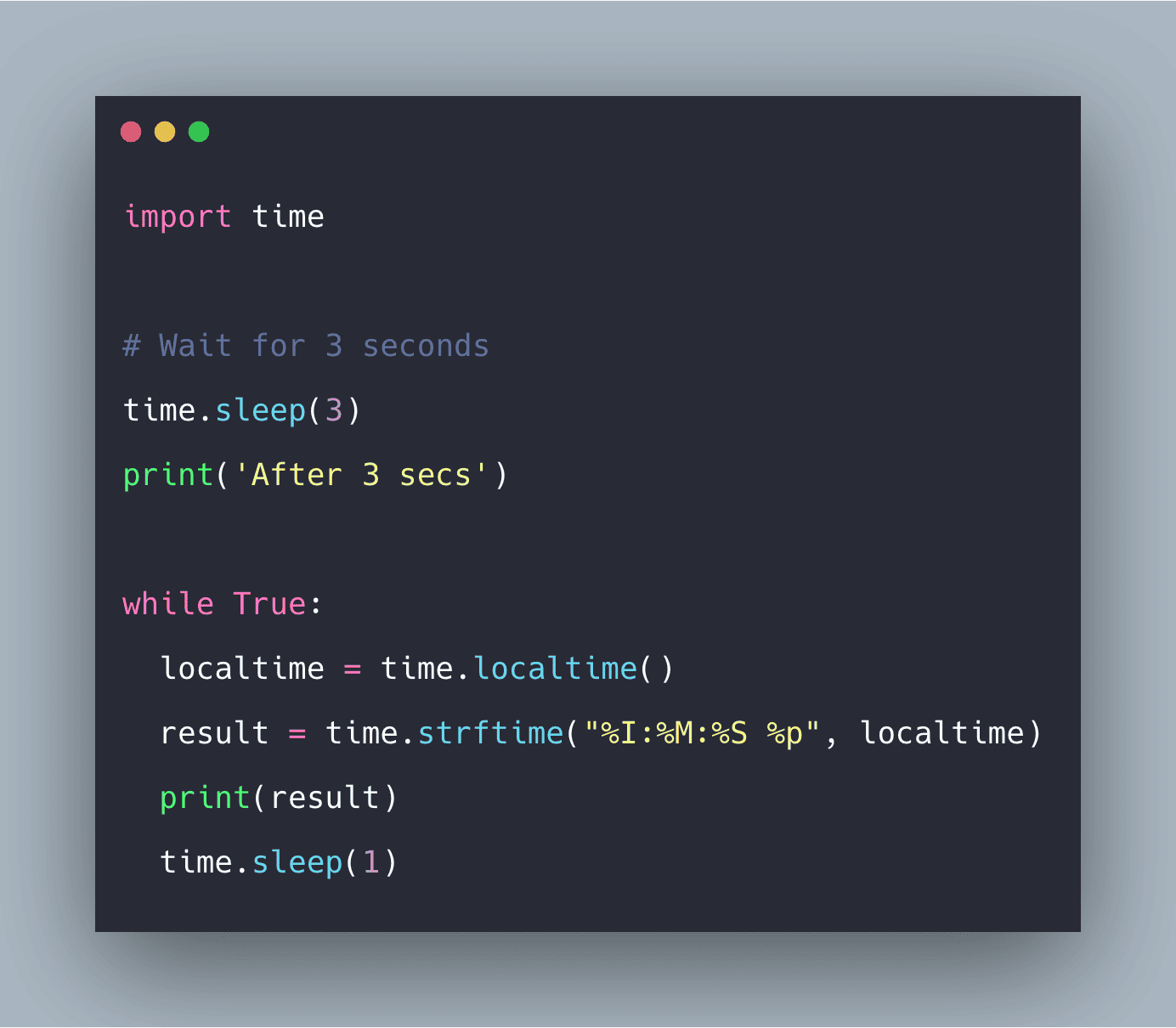Python sleep() function suspends (waits) execution of the current thread for a given number of seconds. Python has a module named time which provides several useful functions to handle time-related tasks. One of the essential functions among them is sleep(). The sleep() function suspends execution of the current thread for a given number of seconds.
Python Time sleep()
The sleep() in Python is defined in the time() module of Python 3 and 2 versions. In some cases, there is a requirement to halt the execution program so that several other executions can take place or only due to the utility required. Python sleep() can come handy in such a situation that provides an accurate and flexible way to halt the flow of code for any period.
The time.sleep() function is equivalent to the Bash shell’s sleep command. Almost all programming languages have this feature and it is used in many use-cases.
#python #python sleep #time.sleep
